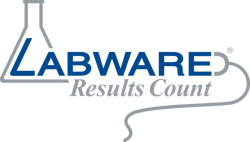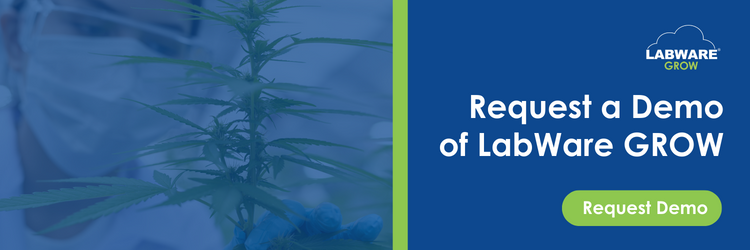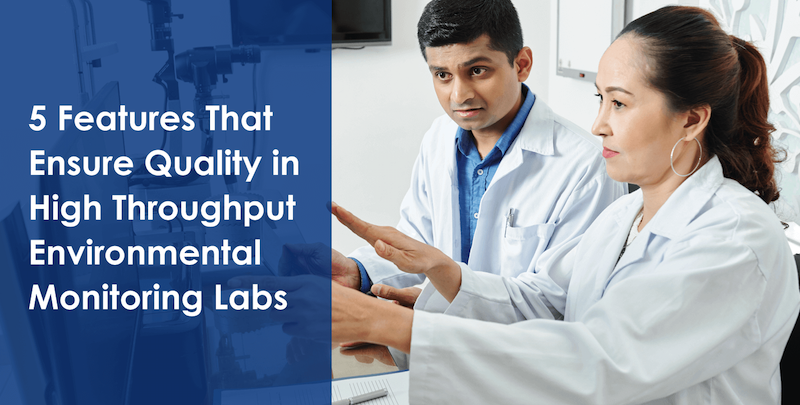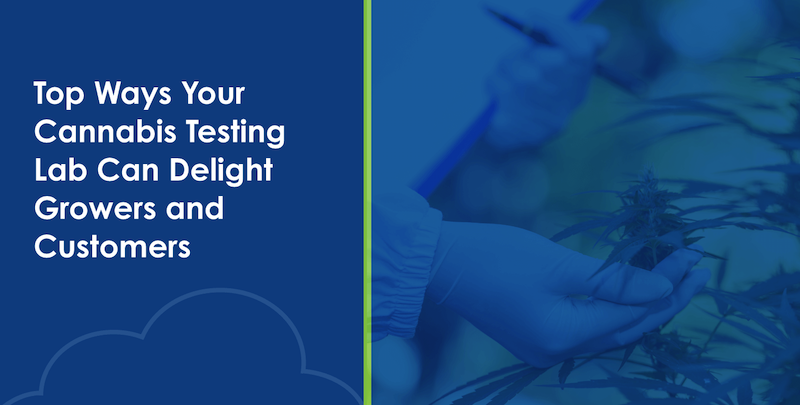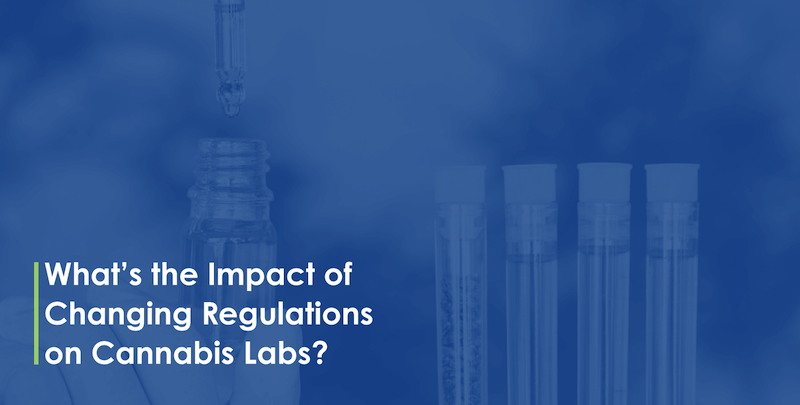
In the rapidly growing cannabis industry, achieving and maintaining Cannabis LIMS Compliance is essential for specialized cannabis testing laboratories. As regulations evolve and ISO 17025 certification becomes increasingly important, labs must adapt to ensure they meet these stringent requirements.
This blog post will explore the challenges faced by cannabis testing laboratories due to evolving regulations and discuss how Laboratory Information Management Systems (LIMS) can help them achieve compliance. We'll delve into the benefits of implementing a LIMS in cannabis labs, focusing on automation features that enhance workflow efficiency.
Furthermore, we'll examine chain-of-custody requirements from FDA and how automated systems can assist in meeting these demands. The importance of remote access features for enhancing client experience will also be discussed along with LabWare GROW – a purpose-built Cannabis LIMS solution designed specifically for this industry.
Finally, we'll highlight the significance of supporting ISO/IEC 17025 standards under changing regulations and explain how purpose-built LIMS solutions play a crucial role in helping labs maintain their Cannabis LIMS Compliance.
Table of Contents:
- Regulatory Compliance and ISO 17025 Certification
- Importance of ISO 17025 certification for cannabis labs
- Challenges faced by labs due to evolving regulations
- Laboratory Information Management Systems (LIMS) for Compliance
- Benefits of implementing a LIMS in cannabis labs
- Automation features that enhance workflow efficiency
- Chain of Custody Requirements from FDA
- Ensuring Proper Documentation with Automated Systems
- Meeting FDA Requirements through Efficient Chain-of-Custody Tracking
- Remote Access Features Enhancing Client Experience
- Streamlining Order Placement through Remote Access Capabilities
- Improving Communication between Clients and Laboratories
- LabWare GROW - A Purpose-Built Cannabis LIMS Solution
- Key Features of LabWare GROW for Cannabis Lab Operations
- Adapting to State-by-State Regulations with a Flexible LIMS Solution
- Supporting ISO/IEC 17025 Standards in Cannabis Labs
- Importance of Maintaining ISO/IEC 17025 Standards under Evolving Regulations
- How Purpose-Built LIMS Solutions Help Achieve This Goal
- Conclusion
Regulatory Compliance and ISO 17025 Certification
This international standard ensures the competence of labs in producing valid results. The impact of changing regulations on cannabis labs includes meeting these standards while maintaining efficiency and accuracy in their operations.
Importance of ISO 17025 certification for cannabis labs
The ISO 17025 standard is essential for cannabis testing laboratories as it demonstrates their technical competence and ability to produce accurate, reliable results. This accreditation not only builds trust with clients but also helps ensure that products meet safety requirements set by regulators. In addition, achieving this certification signifies a lab's commitment to quality management systems (QMS) and continuous improvement processes.
Challenges faced by labs due to evolving regulations
As regulations around cannabis production and testing develop, labs must contend with the difficulties of meeting these new demands while maintaining their high standards. Laboratories face challenges in keeping up with these changes while ensuring they maintain high-quality standards. Some common issues include:
- Varying state-by-state requirements: Cannabis laws differ across states, leading to varying laboratory protocols depending on location.
- New analytical methods: As research advances our understanding of cannabinoids' effects on human health, new methodologies are developed which require validation before implementation into routine workflows.
- Maintaining accreditation status: Labs need ongoing assessments from accrediting bodies like ANSI National Accreditation Board (ANAB) or A2LA to maintain their certifications under updated guidelines.
Laboratory Information Management Systems (LIMS) for Compliance
To maintain regulatory compliance, cannabis testing laboratories need a laboratory information management system (LIMS). LIMS software helps manage data efficiently, ensuring accurate documentation throughout the testing process. Implementing an automated LIMS can streamline workflows and improve overall lab performance under changing regulations.
Benefits of implementing a LIMS in cannabis labs
There are several advantages to using a LIMS solution in cannabis testing facilities:
- Data integrity: Automated systems reduce human error by capturing and storing data directly from instruments or through electronic transfers.
- Ease of reporting: Customizable report templates enable quick generation of required documents such as certificates of analysis (COAs) and chain-of-custody records.
- Audit trail functionality: Comprehensive audit trails ensure traceability and accountability within the laboratory environment, helping meet regulatory requirements.
- Increase efficiency: Streamlined processes save time on manual tasks like sample tracking or batch management while enhancing overall productivity levels.
Automation features that enhance workflow efficiency
Laboratory automation is crucial for maintaining compliance with evolving regulations. Key automation features provided by modern LIMS solutions include:
- Scheduling tools: Create schedules based on available resources, equipment maintenance periods, or workload prioritization to optimize lab operations.
By implementing a LIMS, cannabis labs can ensure compliance with FDA requirements and maximize efficiency in their workflow. Additionally, automated systems provide an effective way to track chain-of-custody documentation for meeting FDA regulations.
Key Takeaway: Cannabis testing labs must obtain ISO 17025 certification to ensure their technical competence and ability to produce accurate results. However, evolving regulations present challenges for maintaining high standards, which can be addressed by implementing a LIMS solution that offers benefits such as data integrity, ease of reporting, audit trail functionality and increased efficiency through automation features like scheduling tools.
Chain of Custody Requirements from FDA
The FDA requires regulated laboratories to provide evidence of chain-of-custody records for samples tested. Documenting accurately is essential for adhering to these regulations and ensuring the testing process remains reliable. Automated cannabis LIMS software can help labs meet this requirement without compromising productivity or quality control measures.
Ensuring Proper Documentation with Automated Systems
In a highly regulated industry like cannabis, it's essential to have accurate and complete documentation throughout the entire testing process. A comprehensive LIMS solution, such as LabWare GROW, automates data management and ensures that all necessary information is captured at each step in the workflow. This includes sample receipt, preparation, analysis, reporting, and disposal.
- Sample Receipt: The system logs when samples are received by the lab along with any relevant details about their origin (e.g., strain type) or client information.
- Preparation: As technicians prepare samples for analysis (e.g., grinding plant material), they enter detailed notes into the LIMS system regarding methods used and any deviations from standard operating procedures.
- Analysis: Labs use analytical instruments like high-performance liquid chromatography (HPLC) or gas chromatography-mass spectrometry (GC-MS) to test cannabinoid potency levels; automated systems capture instrument readings directly within LIMS software ensuring accuracy while reducing manual input errors.
- Reporting: Cannabis LIMS solutions generate reports automatically based on collected data; these reports can include certificates of analysis (COAs) and chain-of-custody documentation, which labs must provide to clients as proof of regulatory compliance.
- Disposal: Finally, the system tracks when samples are disposed of or archived for future reference, ensuring proper handling and disposal procedures are followed.
Meeting FDA Requirements through Efficient Chain-of-Custody Tracking
Maintaining a clear chain of custody is essential for demonstrating that sample integrity has been preserved throughout the testing process. A robust cannabis LIMS solution like LabWare GROW offers features specifically designed to support efficient tracking and management of this critical information. Some key benefits include:
- Automated Sample Tracking: The software assigns unique barcodes or identifiers to each sample upon receipt; these codes link all data associated with a particular sample from start to finish in the workflow.
- Audit Trails: Cannabis LIMS systems maintain detailed audit trails that record every action taken within the software by users; this provides an additional layer of accountability while helping ensure accurate documentation for regulatory purposes.
- Data Security & Access Controls: Labs can configure user access permissions based on job roles or responsibilities; this ensures only authorized personnel have access to sensitive data related to chain-of-custody records and other compliance-related information.
Incorporating automated cannabis LIMS solutions into lab operations not only streamlines workflows but also helps laboratories meet stringent FDA requirements regarding chain-of-custody documentation. By leveraging these advanced tools, labs can maintain their commitment to quality control while navigating evolving industry regulations with confidence.
By utilizing automated systems to ensure proper documentation and tracking, laboratories can meet FDA requirements through efficient chain-of-custody tracking. To further enhance the client experience, remote access features streamline order placement and improve communication between clients and laboratories.
Key Takeaway: Automated cannabis LIMS software can help labs meet FDA chain-of-custody requirements without compromising productivity or quality control measures. LabWare GROW offers features specifically designed to support efficient tracking and management of critical information, such as automated sample tracking, audit trails, and data security & access controls.
Remote Access Features Enhancing Client Experience
In the rapidly evolving cannabis industry, it is essential for testing laboratories to provide a seamless and efficient experience for their clients. One way to achieve this is by implementing remote access features in laboratory information management systems (LIMS). These features not only streamline various processes but also improve communication between clients and labs.
Streamlining Order Placement through Remote Access Capabilities
Modern LIMS software solutions, such as LabWare GROW, offer remote access capabilities that allow lab clients to log into the system from anywhere at any time. This convenience enables them to place orders directly within the platform without having to rely on traditional methods like phone calls or emails. Once an order has been placed, the testing process can begin immediately, reducing delays and ensuring timely results.
Besides placing orders remotely, clients can also track sample progress throughout the entire testing lifecycle. This real-time visibility provides peace of mind and allows them to plan accordingly based on expected completion dates.
Improving Communication between Clients and Laboratories
Laboratory-client communication plays a crucial role in maintaining long-term relationships while navigating complex regulatory requirements. With remote access features integrated into LIMS software solutions like LabWare GROW, both parties have direct lines of communication via built-in messaging tools or email notifications.
- Email Notifications: Automated email notifications keep clients informed about critical updates related to their samples - including test initiation, status changes during analysis phases, report availability upon completion of tests - helping maintain transparency throughout every step of the process.
- Messaging Tools: Built-in messaging tools facilitate quick exchanges between labs and their clients, addressing any questions or concerns that may arise during the testing process. This real-time communication helps ensure accurate results and fosters a collaborative environment for both parties.
Furthermore, remote access features in LIMS software solutions allow clients to view test reports as soon as they are available. They can download these reports directly from the platform, eliminating the need for manual report distribution via email or other means. COAs can be instantly accessed, giving clients the ability to make informed decisions regarding product quality and regulatory compliance.
In summary, implementing remote access features in cannabis LIMS not only streamlines order placement but also enhances overall client experience by improving communication between laboratories and their clientele. As regulations continue to evolve within the industry, it is crucial for labs to adopt such technologies that facilitate efficient workflows while maintaining high levels of customer satisfaction.
Remote access features enable clients to place orders more quickly and easily, while also providing an efficient means of communication between the laboratory and its customers. LabWare GROW is a purpose-built cannabis LIMS solution designed to help laboratories remain compliant with state regulations while optimizing operations in this growing industry.
Key Takeaway: Implementing remote access features in cannabis LIMS can streamline order placement and improve communication between laboratories and their clients. Modern LIMS software solutions like LabWare GROW offer real-time visibility, built-in messaging tools, automated email notifications, and instant access to critical information that enhance the overall client experience while maintaining compliance with regulatory requirements. As regulations continue to evolve within the industry, labs must adopt such technologies to facilitate efficient workflows and maintain high levels of customer satisfaction.
LabWare GROW - A Purpose-Built Cannabis LIMS Solution
As the cannabis industry continues to evolve, laboratories require a robust and flexible laboratory information management system (LIMS) that caters specifically to their needs. LabWare GROW is a purpose-built cannabis LIMS solution designed for both hemp analysis and cannabis testing labs. This software automates orders, sample management, testing, and reporting while providing full chain-of-custody reports and certificates of analysis (COAs), ensuring compliance with regulatory requirements.
Key Features of LabWare GROW for Cannabis Lab Operations
- Data Management: LabWare GROW offers comprehensive data management capabilities that streamline workflows by automating processes such as order placement, sample tracking, result entry, approval routing, report generation, and more.
- User-Friendly Interface: The intuitive user interface allows lab personnel to easily navigate through the system without extensive training or technical expertise.
- Fully Configurable: The software can be tailored to meet specific lab requirements while remaining adaptable enough to accommodate changing regulations in different states or countries.
- Audit Trails & Security: Comprehensive audit trails are maintained within the system along with strict security measures that protect sensitive data from unauthorized access or tampering.
- Instrument Integration: LabWare GROW seamlessly integrates with various analytical instruments used in cannabis testing labs, which helps improve accuracy and efficiency during sample processing stages.
Adapting to State-by-State Regulations with a Flexible LIMS Solution
The legal landscape surrounding the use of medical marijuana varies significantly across different jurisdictions. This presents a difficult predicament for cannabis testing labs, needing to adjust their activities in order to meet the exact rules in each region or country they work in. LabWare GROW is designed to address this issue by offering a highly configurable LIMS solution that can be easily customized according to the regulatory requirements of any given jurisdiction.
For example, some states may require additional tests such as pesticide residue analysis or heavy metal screening, while others might have different reporting formats for COAs. With LabWare GROW's flexible configuration options, laboratories can quickly adjust their workflows and reporting templates accordingly without having to invest in costly software development efforts.
Furthermore, LabWare GROW also supports ISO/IEC 17025 accreditation standards, which are crucial for maintaining credibility and trust among clients within the industry. By implementing this purpose-built cannabis LIMS solution, labs can ensure that they remain compliant with both local regulations and international quality standards while streamlining their operations for maximum efficiency.
LabWare GROW is a purpose-built Cannabis LIMS solution that provides the flexibility and scalability needed to keep up with evolving regulations. Now, let's take a look at how this system can help labs maintain ISO/IEC 17025 standards in cannabis operations.
Key Takeaway: LabWare GROW is a purpose-built cannabis LIMS solution designed for both hemp analysis and cannabis testing labs. It offers comprehensive data management capabilities, an intuitive user interface, audit trails & security measures, instrument integration and can be tailored to meet specific lab requirements while remaining adaptable enough to accommodate changing regulations in different states or countries. With LabWare GROW's flexible configuration options, laboratories can quickly adjust their workflows and reporting templates accordingly without having to invest in costly software development efforts.
Supporting ISO/IEC 17025 Standards in Cannabis Labs
In the rapidly evolving cannabis industry, maintaining compliance with ISO/IEC 17025 standards is crucial for testing laboratories. Purpose-built cannabis LIMS solutions like LabWare GROW can help labs achieve this goal by streamlining processes and ensuring accurate documentation throughout the testing process.
Importance of Maintaining ISO/IEC 17025 Standards under Evolving Regulations
The ISO/IEC 17025 standard outlines general requirements for the competence of testing and calibration laboratories. This accreditation demonstrates a lab's ability to produce valid results consistently while adhering to strict quality management systems (QMS). As regulations change, it becomes increasingly important for cannabis labs to maintain their accreditation status, which can be achieved through implementing an effective LIMS solution.
- Consistency: A purpose-built LIMS ensures that all procedures are followed consistently across different tests and technicians, resulting in reliable data output.
- Data Integrity: By automating data entry and tracking sample information throughout its lifecycle within the system, a robust LIMS minimizes human error and maintains data integrity at every stage of analysis.
- Audit Trails: Comprehensive audit trails provided by automated systems make it easy for regulatory bodies to review laboratory operations during inspections or audits, demonstrating adherence to required standards.
How Purpose-Built LIMS Solutions Help Achieve This Goal
Purpose-built cannabis LIMS solutions like LabWare GROW support the ISO/IEC 17025 standard by offering features specifically designed for hemp analysis as well as cannabis testing labs. These features include:
- Automated Workflows: LabWare GROW automates orders, sample management, testing, and reporting processes to ensure that each step is completed accurately and efficiently.
- Chain of Custody Tracking: The software provides full chain-of-custody reports and certificates of analysis (COAs), meeting FDA requirements for regulated laboratories.
- Flexibility: As state-by-state regulations differ, LabWare GROW can be easily customized to accommodate varying requirements without compromising compliance or efficiency.
In addition to these benefits, implementing a purpose-built LIMS solution like LabWare GROW can also lead to cost savings by reducing manual labor efforts associated with data entry and documentation. Furthermore, the streamlined workflows provided by such systems allow lab technicians to focus on their core competencies rather than administrative tasks.
Maintaining ISO/IEC 17025 accreditation is essential for cannabis testing laboratories as they navigate an ever-changing regulatory landscape. By adopting a purpose-built LIMS solution like LabWare GROW, labs can streamline their operations while ensuring adherence to this critical standard - ultimately safeguarding both the quality of their results and the reputation of their business in a competitive market space.
Key Takeaway: Maintaining ISO/IEC 17025 standards is crucial for cannabis labs, and purpose-built LIMS solutions like LabWare GROW can help achieve this by ensuring consistency, data integrity, and comprehensive audit trails. Such systems also offer automated workflows, chain of custody tracking, and flexibility to accommodate varying requirements while reducing manual labor efforts associated with documentation.
Conclusion
In conclusion, the cannabis industry faces unique challenges in meeting regulatory compliance due to evolving regulations. Implementing a specialized LIMS solution like LabWare GROW can help streamline operations and ensure ISO/IEC 17025 standards are met. With features such as automation, remote access capabilities, and efficient chain-of-custody tracking, cannabis testing laboratories can improve workflow efficiency while maintaining compliance.
For more information on how LabWare GROW can benefit your cannabis lab's compliance efforts, visit LabWare.

